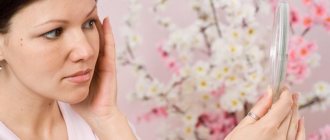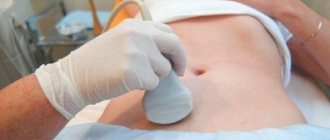The hormonal background in women is often subject to changes; it cannot be called stable at all. Moreover, these jumps are associated with many factors:
- menopause;
- pregnancy;
- menstrual cycle.
Such features have long been the subject of numerous offensive jokes and prejudices in our society. In fact, everything is much more serious and is directly related to physiological symptoms. From a medical point of view, changes in hormonal levels are considered normal. However, our body is a complex system that directly depends on external aspects.
Stress, depression, poor environment, poor nutrition, and bad habits cause an irreparable blow to the health of every woman. This becomes the cause of hormonal imbalance, plus, some representatives of the fair sex turn to specialists only when serious deviations have already begun. In this case, the development of irreversible pathological changes is fraught.
Today we decided to talk about the most difficult, but extremely important topic, and find out which hormones are important for a woman, and what causes the imbalance. We will tell you how to restore hormonal balance, and what you need to do to prevent its failure.
Why are hormones acting up?
The endocrine system, which includes several important glands, including the reproductive glands, is responsible for hormonal levels. Natural anatomical processes in women are regulated by more than 60 hormones. An imbalance can appear at any time, but older women are more susceptible to changes in hormone concentrations. This is due to the fact that the body is preparing for menopause, during which the ovaries sleep and the woman loses the opportunity to become pregnant.
Hormone imbalance cannot be called a separate disease, since it includes a number of pathological processes. Both internal organs and appearance suffer. The quality of hair, skin, and nails deteriorates. Gynecologists consider the onset of early menopause to be the main reason why a woman’s hormones begin to go wild.
Hormonal imbalance is caused by the following reasons:
- Improper unbalanced diet. If a girl abuses diets or eats too much fast food and has few vegetables and fruits in her diet, the likelihood of early menopause increases. The body does not receive the required amount of microelements and vitamins, and therefore is not able to maintain vital functions at a normal level. Hormones are especially affected in girls suffering from anorexia or bulimia.
- Leading an incorrect lifestyle. Constant lack of sleep and stress can cause pathological changes, including disruption of the endocrine system. Abuse of bad habits, constant smoking, alcohol in large quantities or drugs can provoke disruption of the endocrine glands.
- Poor immunity. If the body is constantly attacked by pathogenic bacteria, symptoms of hormonal imbalance may appear. It is necessary to strengthen the immune system in a timely manner, especially during the off-season.
- Uncontrolled use of contraceptives. Since contraceptives have a strong effect on the body, they can only be taken after consulting a doctor. No advice from friends or acquaintances who are suitable for a certain type of contraceptives should be more important than the doctor’s decision. A good gynecologist will prescribe blood tests before selecting pills to identify hormonal imbalances, if any.
- Problems in the sexual sphere. Losing virginity too early or too late is harmful for the fairer sex. Lack of sexual intercourse in adulthood can lead to failure.
- Sexually transmitted diseases. STDs are not only unpleasant, but also dangerous. The result of an untreated disease can be infertility or uncontrolled changes in the functioning of the endocrine system.
- Gynecological operations. These include not only surgical interventions on the ovaries or uterus, but also abortions. After artificial termination of pregnancy, signs of hormone imbalance are very common.
- Operations on the organs of the endocrine system. These include interventions on the thyroid gland, ovaries, and adrenal glands.
- Some diseases of internal organs or injuries. Balance problems can even occur after a traumatic brain injury that may have damaged the hypothalamus or pituitary gland.
There are many reasons why imbalances occur; in most cases, changes in the body are caused by a combination of some of them. After 40 years, any little thing can cause a disturbance in a woman’s body, so you need to carefully monitor your lifestyle.
Most popular drugs
To regulate the amount of major female hormones, doctors prescribe one of the effective drugs. Examples of their names:
- Estrofem is an excellent drug for the prevention of cardiovascular pathologies. It consists of plant components. Prohibited for use if you have liver or kidney diseases.
- Livial increases parathyroid hormone levels. It affects the walls of blood vessels and bone tissue; a lack of the hormone in a woman’s body leads to hypertension and osteoporosis. It must be taken without a break for 5 years, then you have to take a break for six months, after which it is permissible to repeat the course of therapy. It is prohibited during pregnancy, so it is prescribed to women who have already begun menopause.
- Femoston is a universal drug. Sometimes it is even prescribed to men who have problems with the functioning of the prostate. It is able to strengthen the walls of blood vessels and bone tissue, but at the same time causes digestive disorders. During therapy, a woman needs to be under constant medical supervision.
- Kliogest is indicated for the prevention of osteoporosis and hypertension. Its use increases the risk of hepatic colic, internal bleeding and headaches.
- Klimonorm is useful after removal of the uterus and ovaries, but can also be used in other cases. It is not a contraceptive and is prohibited for stomach ulcers, hepatitis and diabetes.
As can be seen from the list, each drug has its own side effects, contraindications and reasons for prescription. Therefore, you should approach your choice responsibly. The medicine that improved your friend's condition may not be suitable for therapy in your case.
Symptoms
How to understand that something wrong is happening to the body? There are certain signs by which one can determine a disruption of the endocrine system in a woman after forty years. Let's look at them in more detail:
- Sleep disturbances. Why do older people like to get up at 5 am? Not because they have all turned into early risers. Getting up early is one of the signs of age imbalance.
- Constantly slightly elevated body temperature. In women with this problem, the body temperature is about 37 degrees.
- Dizziness and headaches. As menopause and menopause approach, representatives of the fair sex begin to increasingly feel unwell, drowsy, and experience migraines.
- Menstrual irregularities. These include lengthening or shortening the cycle, irregular discharge, too much or too little menstrual blood, poor health during menstrual periods.
- Sudden weight gain or loss.
- Problems with hair, nails and teeth. They become fragile, the skin loses its normal tone.
- Sudden changes in mood, you may suddenly want to cry, and after 5 minutes you may want to laugh for no reason. Some have outbursts of unmotivated aggression.
- A woman cannot become pregnant normally, carry a child to term and give birth without complications.
- Due to disruption of collagen production, stretch marks appear on the abdomen and thighs even in the absence of pregnancy.
- The libido level decreases significantly, you don’t want to have sex, and you may feel frigid.
The above symptoms of the disorder are considered the most common; depending on the individual characteristics of the body, they may be supplemented by other signs of hormonal imbalance.
Let's look at other symptoms of creeping menopause:
Hormonal imbalances typical of middle age lead to excess weight
The hormonal imbalances that come with middle age are what happened to Ariana Green. That's when her fat began to grow quickly and uncontrollably. She recalls: “I was thin most of my life. Maybe the weight fluctuated between five and seven kilograms, but nothing special. And suddenly I started gaining weight quickly.”
To some extent, Ariana's problems with weight were due to the fact that she spent a lot of time at work and did not train intensively enough. But these lifestyle issues were exacerbated by her hormonal changes. Two factors together turned out to be an “explosive mixture.” Ariana says: “When I turned fifty, I suddenly gained weight and it was very unpleasant. I couldn't understand what was happening to me.
Ariana didn't know what to do, so she just went with it. She continues to build her career and is calm about the strange changes in her body. She thought she still looked attractive. Then came that fateful moment when she saw a photo of herself in a swimsuit.
If there is a malfunction in the hormonal system, you need to consult a doctor for help.
In just a few years, Ariana gained more than 60 kilograms, and now her weight was 140 kilograms. By following a variety of diets, she managed to lose some weight. However, after seeing the photo, Ariana realized that this was not enough and something else urgently needed to be done. She had always been a woman whose beauty and figure were admired, and now she felt deeply unhappy.
However, she didn't know what to do. The only thing I could do was try to start another diet. One day, a friend asked her if she had ever heard of bioidentical hormones, which are synthetic hormones similar to human ones.
For Ariana, it seemed like something out of science fiction, but at that moment she was ready to try anything to lose weight. Ariana decided to seek help from a doctor. And this is logical. After all, it is not the healthy who need a doctor, but the sick. And hormonal problems are already a serious disease.
Hormonal changes often result in weight gain
Subsequently, Ariana recalls her visit to the doctors: “They told me that there were almost no hormones in my body, that they had completely disappeared. And so it was not unusual for me to gain so much weight, and also to experience depression, crying constantly, feeling confused and tired. My condition tormented me to such an extent that sometimes it seemed to me that I was mentally ill.”
Ariana realized that fighting obesity would not be an easy task. The aging of her body is the reason why fat accumulation has become her chronic disease and will require her daily attention. Ariana says, “This doctor was one of the first people to tell me straight out that I would have to deal with this for the rest of my life. And it was the pure, eye-opening truth.”
What is the danger?
Don’t think that hormonal imbalance will go away on its own. The human body is smart and can independently control the production of hormones. But in case of serious failures, treatment cannot be avoided. Ignoring the problem and lack of proper therapy will lead to the following negative consequences:
- your appearance will get worse. Brittle hair, unhealthy complexion, fine wrinkles and a tired appearance did not give beauty to anyone;
- since hormonal levels also control mental state, prolonged imbalance in women can cause depression and other psycho-emotional disorders;
- due to a constant lack of strength and malaise, chronic fatigue syndrome may gradually develop;
- the risk of pelvic organ diseases increases;
- Benign and malignant neoplasms may appear in the breast, ovaries, and uterus;
- bones and joints become fragile, resulting in a risk of osteochondrosis, arthrosis, fractures, and dislocations;
- the normal functioning of internal organs is disrupted, chronic diseases appear;
- the risk of developing diabetes increases;
- a woman loses the opportunity to become pregnant normally, to bear a child, and lactation is disrupted.
Hormonal imbalances are truly dangerous; such disruptions cannot be ignored; the consequences can be serious. But modern medicine successfully treats such pathologies, so treatment cannot be delayed. To start full-fledged therapy, you need to contact a good endocrinologist.
Consequences of violations
An excessive indicator or, conversely, an insufficient number of biologically active substances leads to certain problems. The menstrual cycle is seriously disrupted, reproductive function suffers, and during pregnancy the risk of miscarriage or complete infertility increases. Other consequences are associated with gynecological diseases (fibroids, polyposis, etc.). Sometimes an excess of hormones leads to the development of hormone-dependent formations. But in psycho-emotional terms, a hormonal imbalance, or rather a consequence in the form of irritability or apathy, leads to the development of a severe form of depression.
Correct diagnosis
Before going to the doctor, a woman needs to find out what diagnostic methods a good doctor should use. The basis for determining hormonal imbalance is a qualitative blood test. Both a general analysis and a separate one for hormones should be carried out. Additionally, the doctor may recommend an ultrasound and tomography of the brain. This will make it possible to determine which gland malfunction caused the disorder. In particularly severe cases, additional diagnostic methods may be required. If there is a suspicion that the culprits of the “triumph” are the organs of the reproductive system, it is necessary to undergo a full examination of the ovaries and uterus.
Methods for diagnosing hormonal imbalance
A doctor who advises, diagnoses and treats hormone disorders is called a gynecologist-endocrinologist. It is he who collects a complete medical history and examines the woman. To ensure the accuracy of the diagnosis, some laboratory tests are performed. A woman must get tested for 6 important hormones in life.
The doctor may additionally prescribe colposcopy, ultrasound (intravaginal or examination of the endocrine glands and adrenal glands). Only then, if necessary, can a woman continue examination by a neurologist, psychotherapist, etc.
Treatment
The key principle of therapy is to attack the problem from all sides. For complete treatment, it is necessary to focus on three areas:
- Determine the root cause of the failure. If this is some kind of disease, you need to first cure it or remove the disturbing symptoms as much as possible. You cannot begin to treat an imbalance without treating the disease that caused it.
- Correct therapy. An imbalance means that some hormonal substance is missing; it must be obtained from the outside if the body is able to produce it on its own. For this purpose, a course of synthetic hormones is prescribed. Taking such potent drugs should be under the supervision of an endocrinologist, otherwise the situation will only get worse. Therapy can last several weeks or months, and for some diseases it is necessary to take hormones throughout life.
- Lifestyle correction. If you do not try to remove as much as possible all factors that can provoke hormonal imbalance, you will not achieve success from therapy. It is necessary to improve your diet, get rid of bad habits, and get used to regular physical activity.
The selection of therapy should be carried out by the attending physician; self-medication in such a serious matter will only do harm. In some cases, lifestyle correction and therapy may not be enough, then surgical interventions are resorted to.
Medicines
Therapy with tablets forms the basis for the treatment of failures in women after 40 years. Since at this age the pathology most often relates to the female reproductive system, it can be treated with the help of properly selected contraceptives. Each drug contains a different amount of hormones; there are two types of medications: single-phase and biphasic.
For the correct selection, it is necessary to monitor the course of the monthly cycle. If spotting continues immediately after the end of menstruation or appears a few days after menstruation, it means that there is not enough estrogen in the drug you are taking. If you bleed in the middle of the cycle, there is not enough gestagen. The culprit of bleeding at the very end of the cycle before the onset of menstruation is a lack of progesterone. Only the correct selection of contraceptives based on a complete blood test and examination of the pelvic organs will help correct existing hormonal disorders and not lead to the appearance of new ones.
If for some reason it is impossible to take contraceptives, the woman is prescribed a comprehensive treatment to normalize the balance, including:
Mastodinon
Cyclodinone
Klimadinon
- Preparations "Mastodinon" and "Cyclodinone" for improving a woman's disrupted menstrual cycle.
- The medicine “Klimadinon”, which will help cope with the unpleasant manifestations of menopause and menopause.
- Vitamin E, which can naturally control the production of progesterone and estrogen, the deficiency or excess of which leads to menstrual irregularities.
- Vitamin A and calcium, which will improve the quality of hair and nails, will restore skin tone.
It is impossible to cope with the problem on your own, so if you have the slightest suspicion of hormonal imbalance, consult a doctor.
Age-related hormonal changes in women at 40 years old
The most important hormones in the female body are estrogen and progesterone. They determine the feminine principle: they stimulate the maturation of eggs, the onset of menstruation, pregnancy and childbirth. They are also responsible for the health of the genital organs, the slimness and condition of the skin, mucous membranes, and libido. They affect the condition of the skeletal and cardiovascular systems.
After 40 years, a woman begins to notice certain signs that indicate hormonal changes. This period is called menopause. It is caused by a deterioration in the functions of the ovaries, which begin to synthesize less estrogen. As a result, the menstrual cycle increases, and the intensity of discharge decreases (although it is possible the other way around), and reproductive function decreases.
Menopause is a natural process characterized by hormonal changes in women.
The chance of getting pregnant after 40-45 years is about 1%.
Stages of menopause and hormone levels
The amount of estrogen and progesterone depends on the stage of menopause. There are 3 of them:
- Premenopause. It begins on average at 45-47 years of age. The number of follicles deposited at birth is negligible, so the chances of getting pregnant are low. Menstruation continues, but often occurs without ovulation. Estrogen concentrations are unstable, but they tend to decrease. During this period, the woman feels significant discomfort from the existing symptoms, and also notices changes in appearance.
- Menopause. The ovaries are practically atrophied, so they do not produce estrogen. This period begins after the last menstruation and lasts 12 months. To distinguish it from a prolonged menstrual cycle, they take an analysis of FSH levels. Its synthesis is carried out by the pituitary gland; this hormone is involved in the formation of estrogen. During menopause, follicle stimulating hormone reaches an all-time high. But reliable data is only possible after a 6-month delay.
- Postmenopause. It occurs after 53-55 years and is characterized by a complete cessation of the synthesis of estrogen and progesterone - their levels become critically low. FSH decreases compared to the menopausal stage to the level inherent in girls before puberty. Against the background of these changes, testosterone produced by the adrenal glands may increase.
Folk remedies
Those who like to try to get rid of all diseases with the help of medicinal herbs should remember that traditional medicine is not able to completely cure a serious problem. Traditional recipes will help support the body and make drug therapy more effective. It is recommended to use the following means:
- Cumin oil. It is effective for normalizing hormonal levels in women. When used correctly in conjunction with drug therapy, cumin oil can even cure infertility. The substances contained in the oil will help calm the nervous system, strengthen the heart and blood vessels. It is recommended to drink one teaspoon before each meal; if you do not like the consistency or it is difficult to take it on an empty stomach, you can drink the oil after meals. When taking hormonal medications regularly, it is important to ensure that at least 3 hours pass between taking the pill and consuming the oil, otherwise the medication may not work.
- Linseed oil. Its effects on the body are similar to those of natural estrogen. Flaxseed oil is recommended for use by girls at any age, but it becomes especially useful after 40 years. Flax oil relieves menopause symptoms well and has a beneficial effect on appearance.
- Mint. This plant can also reduce the symptoms of menopause and help you feel better. If you are concerned about mood swings and nervous disorders, it is recommended to drink a cup of mint tea at night. Mint decoctions will help you lose weight; to do this, you need to brew a tablespoon of the plant in a glass of hot water. The drink needs to steep for 15 minutes and then drink. Thanks to the beneficial substances contained in mint, you can control your metabolism and reduce your appetite.
- Beet. Beetroot juice is especially effective because it contains natural phytohormones, as well as many vitamins and microelements. Despite all the benefits of beet juice, you should not drink more than 200 ml per day, especially if you have problems with the kidneys, digestive system, or low blood pressure. It is advisable to dilute it with other juices; carrot juice works well.
- Sage. This plant contains many phytohormones, so it should be used with caution. Decoctions and infusions based on sage will help regulate the menstrual cycle, make menopause less unpleasant, and overcome infertility. To prepare the infusion, you need to take a teaspoon of dry sage, pour a glass of boiling water and leave for 15 minutes. The resulting volume should be divided into 3 parts and drunk before each meal. It is important not to consume the infusion late in the evening, otherwise you may have trouble sleeping. Despite the obvious benefits for women's health, sage should not be used if you have uterine fibroids, endometriosis, thyroid diseases, or diseases of the pelvic organs.
The use of medicinal plants will help to establish a balance, but you must consult your doctor and follow all his instructions.
Other folk recipes - in the video:
Herbs phytoestrogens for women: list, how to use
There are also folk remedies that contain phytoestrogens. Basically these are herbs for women . Therefore, if you do not want to purchase tablets or expensive drops, you can prepare infusions and decoctions yourself. Herbs are sold in any pharmacy, their price is quite low.
List of herbal phytoestrogens for women:
- Upland uterus . This herb is often used for menstrual irregularities. To prepare the solution, you need to pour 20 grams of herbs into 220 ml of boiling water. It is best to prepare this solution in a thermos. You need to let it sit for about 2 hours. Take this remedy 20 ml 3 times a day. It is advisable to take it before meals.
- Hop cones . This medicine is used during menopause, as it contains phytoestrogens. To prepare the healing composition, you need to pour 125 g of fresh cones with vodka or alcohol. The amount of alcohol should be approximately 500 ml. All this is shaken and placed in a dark place for about 7-10 days. It is necessary to shake the substance from time to time so that the cones release their juices and beneficial substances well into the alcohol. Next, you need to strain the mixture and squeeze out the hop cones using gauze. A solution of five drops is taken. It is advisable to dilute it in a tablespoon of warm water. Use twice a day, morning and evening, separately from meals. Under no circumstances should you take this remedy on an empty stomach.
- Red clover . In order to prepare a healing decoction, you need to pour 3 tablespoons of raw materials into 500 ml of boiling water. Boil for 2 minutes. Next, you need to strain the broth and take it 120 ml three times a day. It is advisable to do this 20 minutes before meals. Many doctors recommend combining the ingestion of phytoestrogens with douching. This will be very useful if there is dryness in the vagina, as well as pain during sexual intercourse. In this case, phytoestrogens are diluted several times, and the solution is made less concentrated.
Herbs with phytoestrogens
Prevention
Preventive measures do not include anything supernatural. To prevent hormonal imbalance from disturbing a woman, it is necessary:
- Adjust your diet. You should have breakfast, lunch and dinner at approximately the same time. Try to organize a balanced diet that can saturate the body with essential vitamins and microelements. Dishes should be low-calorie, limit the consumption of sweets, fatty and salty foods. If you are overweight, choose the right diet, do not torment your body with fasting or excessively small portions.
- Normalize sleep. To feel good, you need to sleep at least 7 hours, you need to forget about lack of sleep. If you have problems sleeping, you can take mild sedatives or sleeping pills, preferably natural ones.
- Try to minimize stress and nervous tension.
- Visit your gynecologist regularly - at least once a year, even if there are no complaints. This will allow you to recognize diseases of the pelvic organs at the stage of their inception and quickly get rid of them. If necessary, donate blood for hormones. Do not forget to mark the onset of menstruation on the calendar, this will allow you to track irregularities in the monthly cycle.
Hormonal changes are a serious problem that requires prompt treatment. Before the onset of menopause, women are subject to hormonal fluctuations, so during this period they need to visit a gynecologist or endocrinologist as often as possible. If you are concerned about any of the above symptoms, do not delay, consult a doctor. The disease can be cured if you approach this issue in a timely manner and with all responsibility.
Contraindications
This treatment is not suitable for all representatives of the fair sex. There are situations when artificial hormones are not prescribed. These include:
- The presence of malignant formations in the mammary glands;
- Bleeding in the uterine cavity;
- Decompensated stage of diabetes mellitus;
- Liver failure.
It is not recommended to self-prescribe any treatment. You should first consult a doctor and undergo appropriate diagnostics. After which the specialist will select the optimal medication option.










